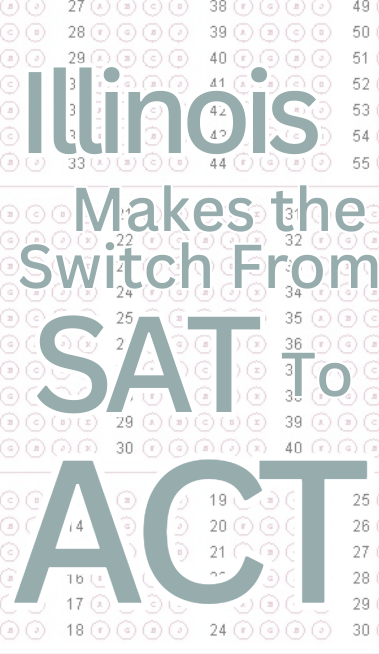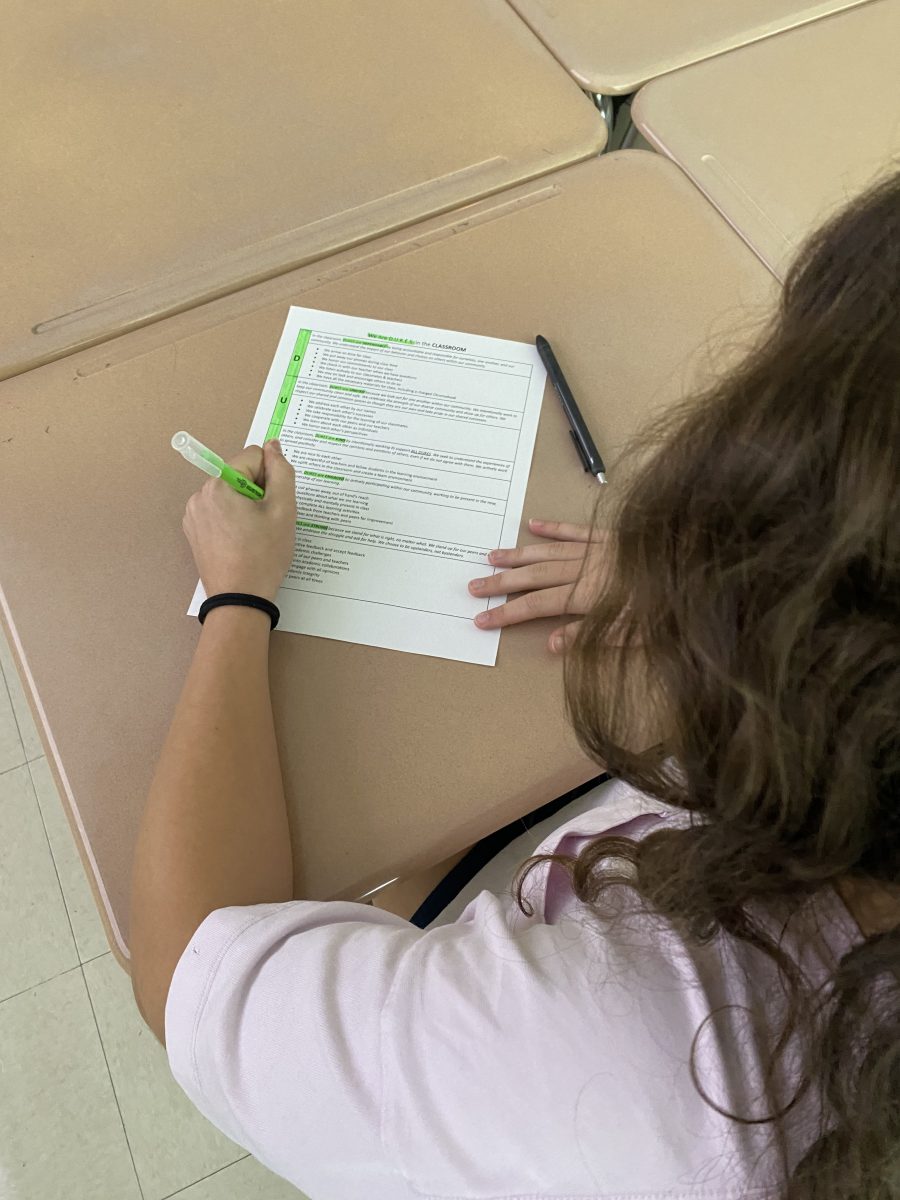The state of Illinois made the decision at the end of the 2023-2024 school year to switch from the SAT to the ACT based on structure, data, and the curriculum.
The SAT and the ACT are standardized tests used for college admissions across the United States to prepare students for their future ahead. Although they seem pretty similar especially with the writing portion, they differ in other categories of the exam. The ACT has four different sections: English, reading, mathematics, and scientific reasoning. The SAT has three different sections: English, reading and mathematics.
“They’re both standardized tests, but serve slightly different functions,” Joe Geocaris, Division Chair for Literacy said. “SAT was trying to measure if you are ready for college while the ACT aims to predict how successful you are likely to be in college.”
The tests differ in structure to help students and teachers pin-point where they are academically. This allows the administration the opportunity to review the test’s data to make sure they give students the best chance to succeed.
“The ACT gives us as a school the opportunity to revisit how we’re supporting students in preparing for the test,” Adam Roubitchek, Assistant Principal For Instruction said. “As well as what our curriculum looks like and how it relates to the standards.”
The SAT has been the main standardized test for almost a decade. This means the school has not had much variety in data. With the switch to the ACT, the school can dive deeper into the education students are receiving.
“Realistically, we have 10 years worth of data about how students perform on the SAT and it really guides what we do and how we measure our progress as a school,” Roubitchek said. “We throw all that data away and we have to start all over with ACT data.”
There is concern about losing valuable SAT data points because teachers and administrators are more familiar with the SAT. These logistical hurdles are echoed by the practical challenges that the staff, including social studies teacher Brendan Holba, are expressing about new procedures.
“Teachers and administrators have been preparing for the SAT for the last decade,” Holba said. “Now we have to make this pretty big switch with totally different tests, different procedures, protocols, everything.”
Even with this set back, administrators and teachers have been working hard and learning everything about the test in order to guide students.
We’ve done a lot of learning since they made the switch as of last school year [2023-2024],” Roubitchek said. “Mainly working with our division chairs to figure out how we need to tweak our curriculum to better prepare students.”
Based on the test and the data from previous years, teachers and administrators are tweaking what they teach and the way they teach to assist students more.
“The English teachers, math teachers, and science teachers did a deep dive into what the test looks like and how it’s constructed,” Geocaris said. “We are purchasing some materials that we can use to help students to fill in some of those things that we know we need to.”
Teachers from each subject analyzed the structure and the fundamental concepts of the ACT to identify where students require additional help. The school has invested in tools to address these gaps in learning and help students succeed in the future.
“There are [colleges] in the business of making money, they want to make sure they are accepting students that are going to have success and are going to graduate and make them look good down the road,” Roubitchek said. “If they’re having trouble doing that without test scores, they’re going to start requiring test scores.”
Since the pandemic, students have had a hard time finding places to take a standardized test, so most colleges opted to test-optional. While we still see the effects of the pandemic today as most colleges remain test-optional, some colleges are slowly reverting back to having standardized tests be required with the intent of better assessing student’s readiness for college.
“I ultimately think that colleges are going to start going back to these tests,” Holba said. “I know that most schools have been test optional for a little while, but the writing seems to be on the wall, they are going to shift back to these standardized tests.”
Requiring standardized tests helps colleges have a more accurate view of those who apply, which could lead to students having a better chance of getting into their number one college. Right now, it’s frustrating for students to have to make the switch to this foreign test, but it will eventually benefit them.
“I know some students are a little irritated that we pulled the rug out from under them,” Roubitchek said. “We’re rolling with it just the same as every other school.”
All Illinois high schools are requiring the ACT to graduate, so students statewide are feeling the same frustration. Teachers and administrators are doing everything they can to help support students the best they can.
“We’re trying to get everyone through these first few years,” Geocaris said. “They’re going to be a little wacky, but we’re working on getting everything in order and supporting students the best we can.”









